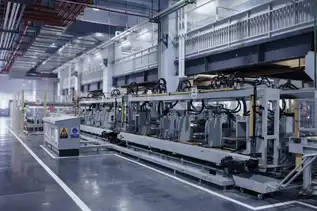Understanding Business Process Automation
Definition of Business Process Automation
Business process automation (BPA) refers to the use of technology to automate repetitive tasks and streamline business operations. By implementing automation, businesses can reduce manual intervention, minimize errors, and improve overall productivity. BPA can be applied to various processes, including customer service, marketing, finance, and inventory management.
Importance of Automation for Business Operations
In today's competitive landscape, efficiency is key to maintaining a strong market position. Business process automation allows organizations to optimize their operations, reduce costs, and enhance customer satisfaction. By automating routine tasks, businesses can focus on strategic initiatives that drive growth and innovation.
Benefits of Business Process Automation
Increased Efficiency and Productivity
One of the primary benefits of business process automation is the significant increase in efficiency and productivity. Automated systems can perform tasks much faster than humans, allowing businesses to complete processes more quickly and accurately. This efficiency frees up employees to focus on higher-value activities, such as strategic planning and customer engagement.
Reduced Errors and Improved Accuracy
Automation drastically reduces the likelihood of human error in repetitive tasks. By relying on automated systems to handle data entry, calculations, and other routine processes, businesses can ensure greater accuracy and consistency. This improvement in operational integrity can lead to better decision-making and enhanced customer satisfaction.
Enhanced Customer Experience and Satisfaction
Automating customer interactions can significantly enhance the overall customer experience. Automation tools, such as chatbots and automated email responses, provide quick and reliable service, ensuring that customer inquiries are addressed promptly. This improved responsiveness leads to higher customer satisfaction and loyalty, ultimately driving growth.

Comprehensive Growth Solutions for Your Business
Explore the benefits of comprehensive growth solutions for your business, including web design, SEO, automation, Google Business Profiles, and marketing.
Examples of Processes That Can Be Automated
Customer Support Automation
Customer support is one of the most common areas for automation. Implementing chatbots and automated ticketing systems can streamline customer interactions, providing immediate assistance and resolving issues without human intervention. This not only improves response times but also allows support teams to focus on more complex inquiries.
Financial and Administrative Tasks
Many financial and administrative tasks can be automated, such as invoicing, payroll processing, and expense tracking. By automating these processes, businesses can reduce the time spent on manual tasks and minimize the risk of errors, leading to more accurate financial management.
Marketing Automation
Marketing automation tools enable businesses to manage campaigns more effectively. From email marketing to social media scheduling, automation allows for targeted messaging and consistent engagement with customers. This leads to improved conversion rates and a more efficient marketing process.
Inventory Management
Automation can also enhance inventory management by tracking stock levels, managing orders, and forecasting demand. Automated inventory systems provide real-time data, helping businesses make informed decisions about restocking and reducing excess inventory.
How to Implement Business Process Automation
Assessing Your Business Needs
Before implementing automation, businesses should assess their specific needs and identify processes that would benefit most from automation. This involves analyzing current workflows, identifying bottlenecks, and determining which tasks are repetitive and time-consuming.
Choosing the Right Automation Tools
Choosing the right automation tools is critical for successful implementation. Research various options available in the market, considering factors such as ease of use, scalability, and integration capabilities. Selecting tools that align with your business goals will ensure a smoother transition to automation.
Training Employees for Successful Adoption
To maximize the benefits of automation, businesses must provide adequate training for employees. Ensuring that staff members understand how to use new tools and processes is essential for successful adoption. Ongoing support and resources can help employees feel confident in utilizing automation to enhance their work.

Why You Need a Business Growth Consultant
Explore the benefits of hiring a business growth consultant and how they can drive your business growth.
Embracing Business Process Automation for Growth
Recap of the Importance of Automation
In conclusion, business process automation is a vital component of achieving sustainable growth in today's competitive landscape. By streamlining processes, increasing efficiency, and enhancing customer experiences, automation can drive significant improvements in business performance.
Encouragement to Explore Automation Solutions
If you haven't yet embraced automation in your business, now is the time to explore the various solutions available. By implementing automation, you can free up valuable resources, improve operational efficiency, and position your business for long-term success.

FAQ: Questions About Automating Business Operations

Business Automation
Innovative Automated Business Ideas for Entrepreneurs
Discover automated business models and successful examples that can inspire your entrepreneurial journey.

Business Automation
How Small Businesses Can Automate Tasks Effectively
Explore common tasks that can be automated and a step-by-step guide to implementing task automation in your business.

Business Automation
The Importance of Business Automation for Growth
Explore the benefits of business automation and how it can help your business achieve sustainable growth.
